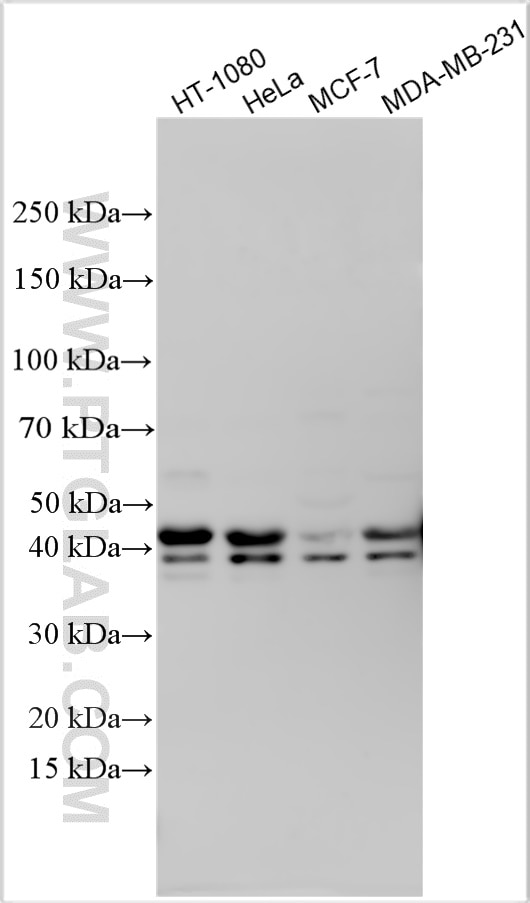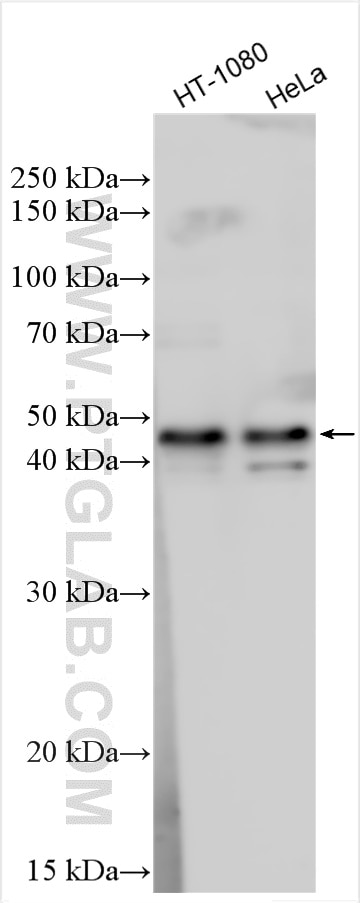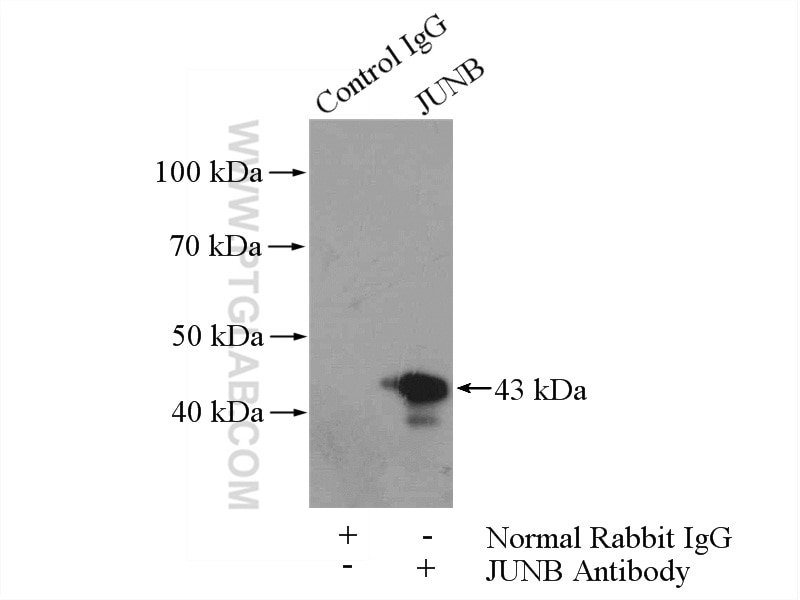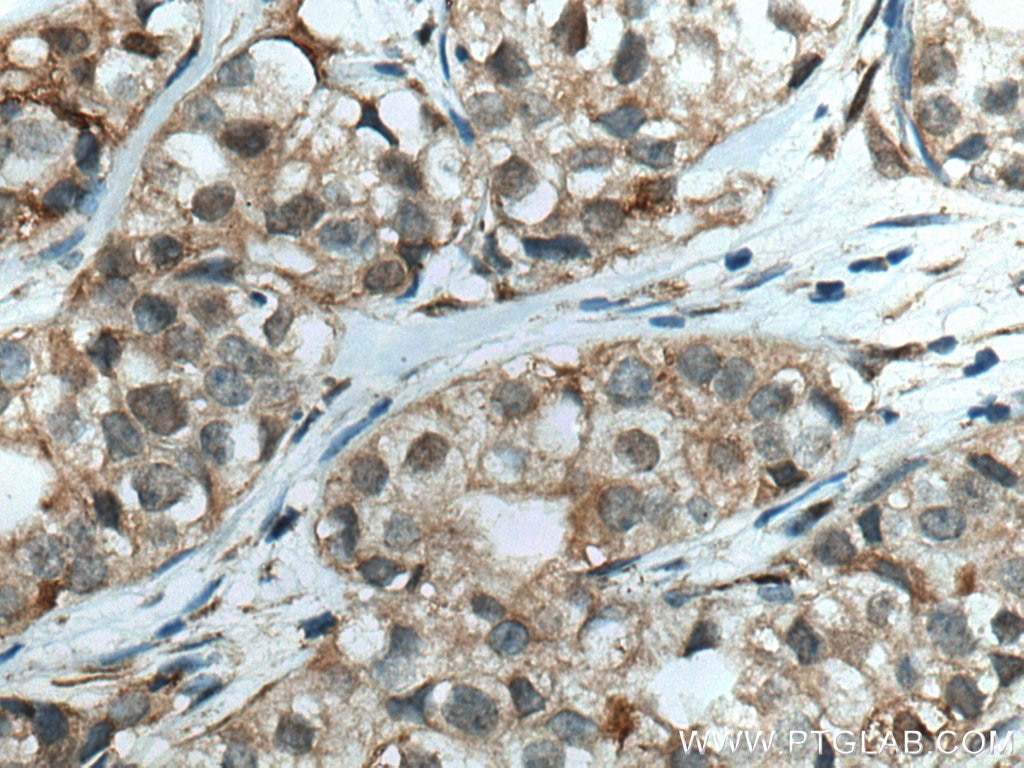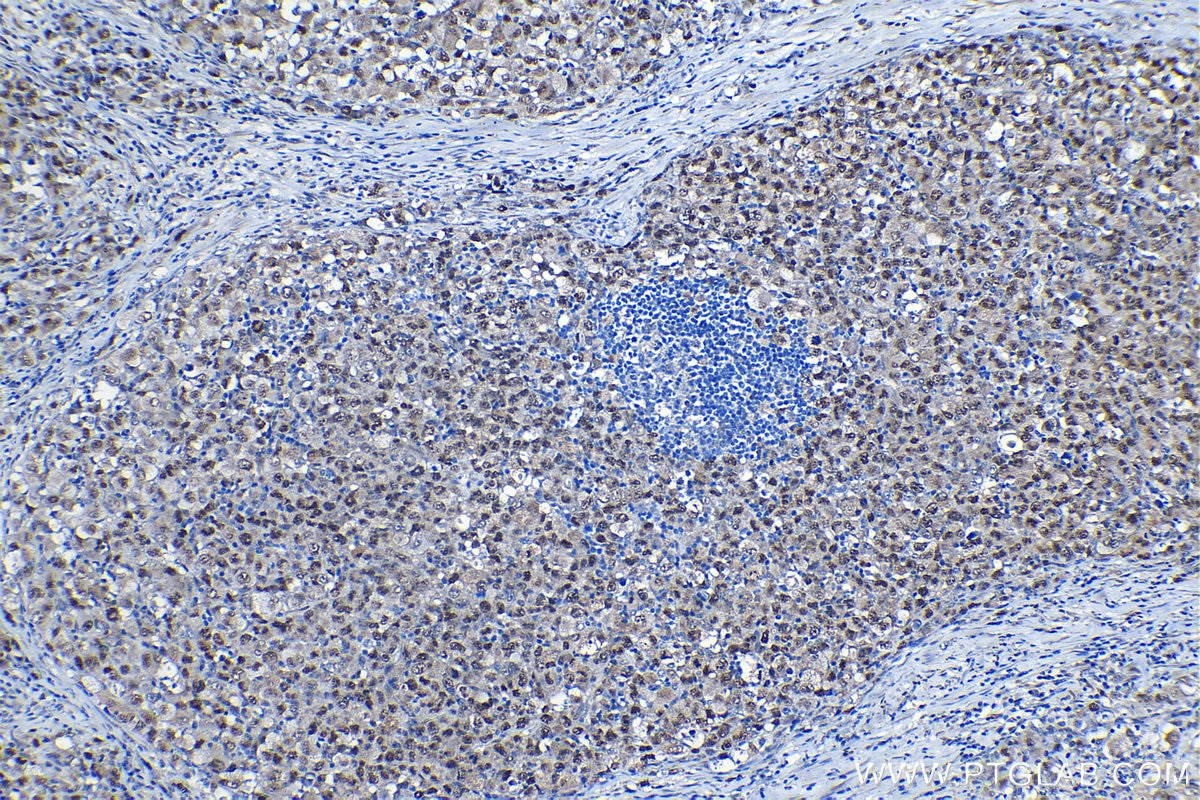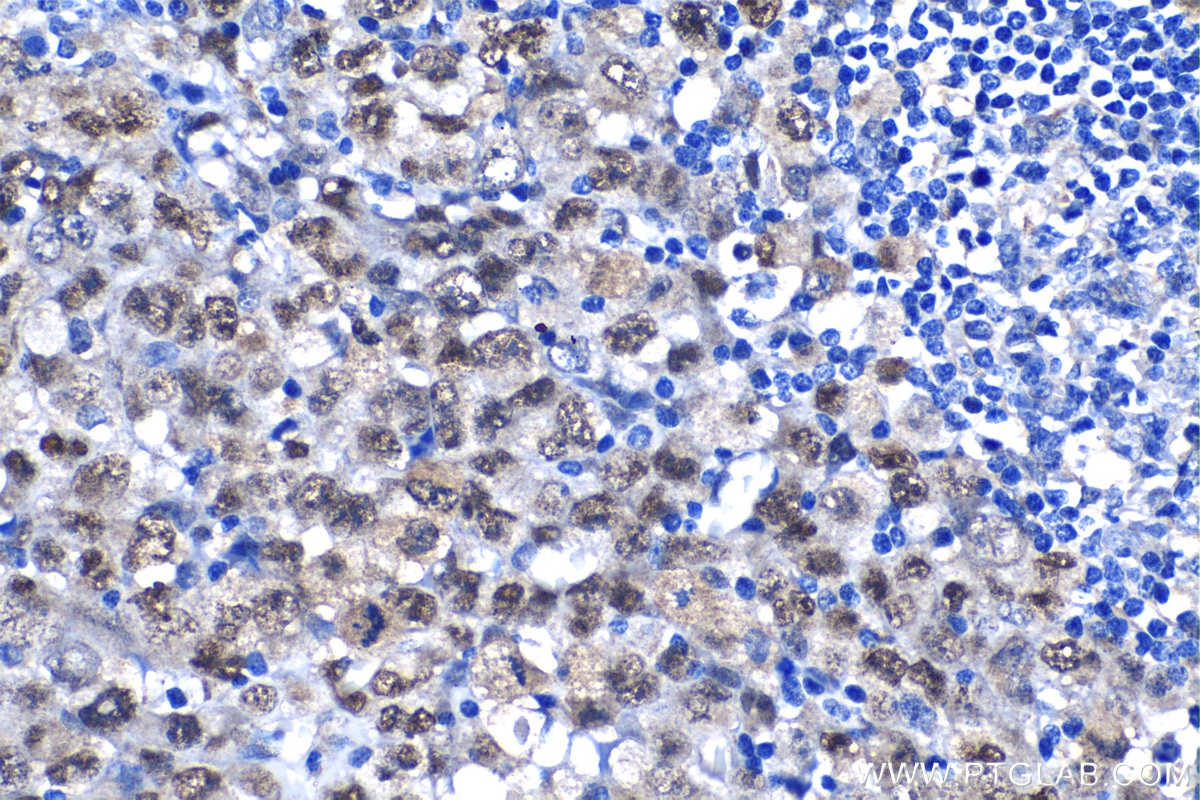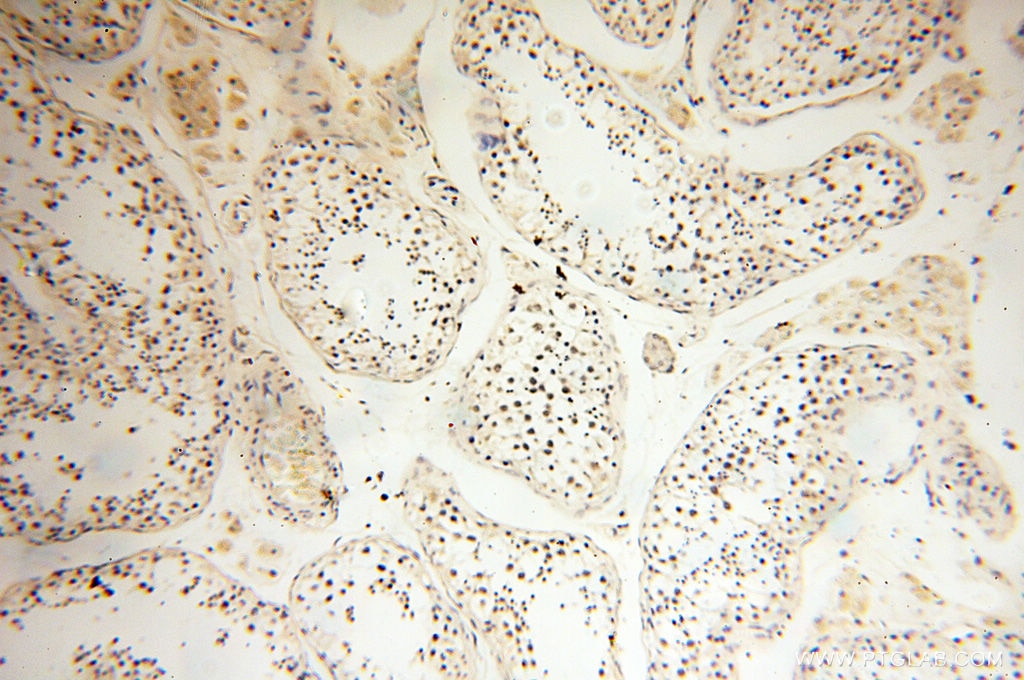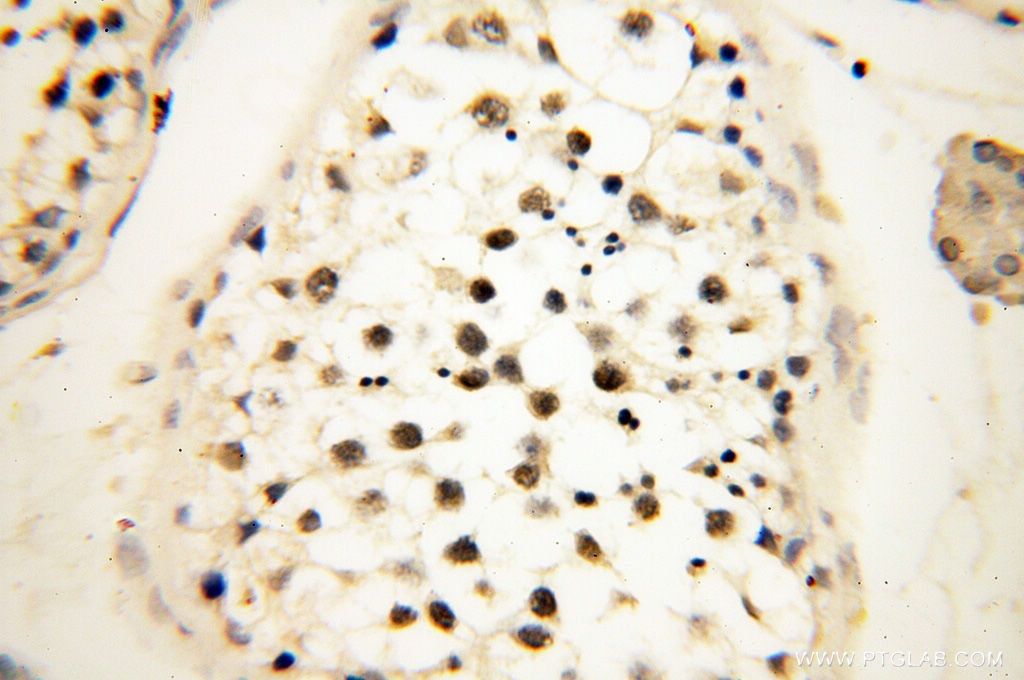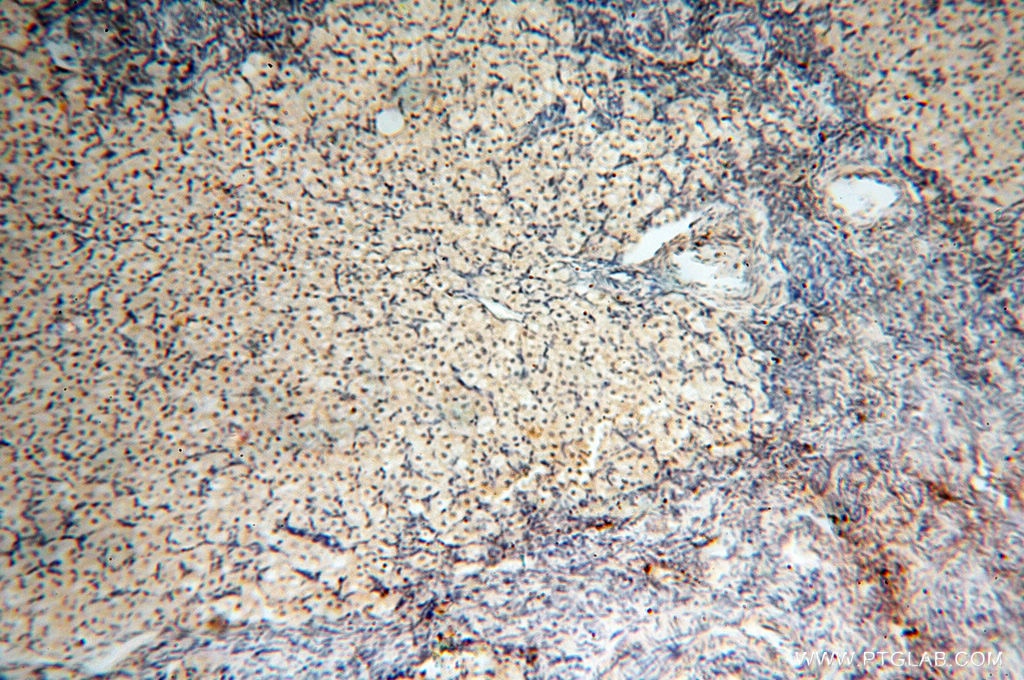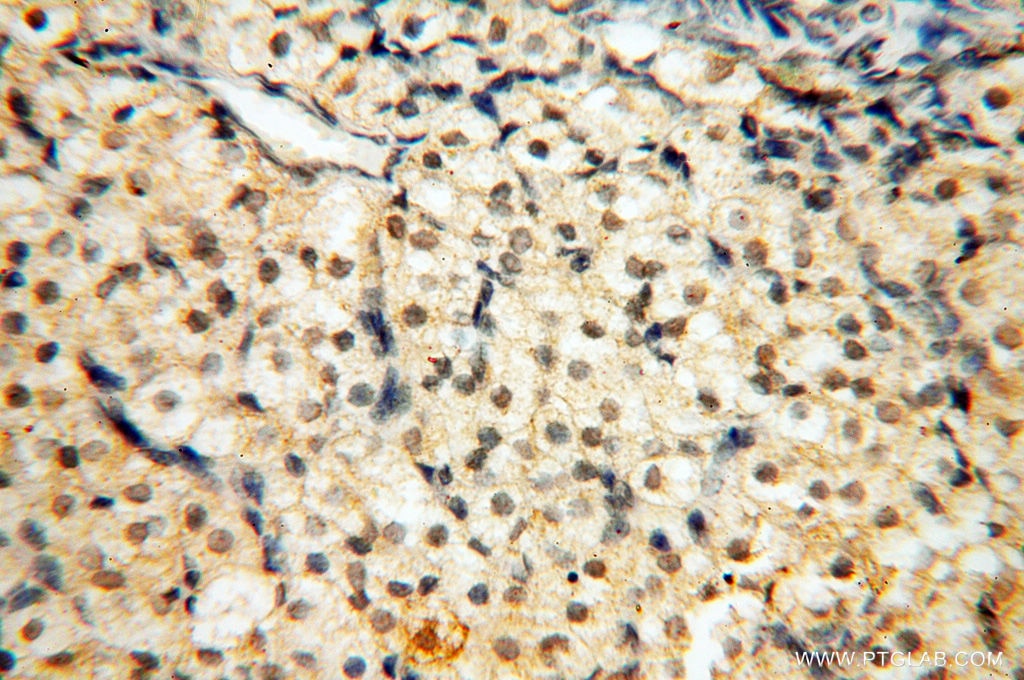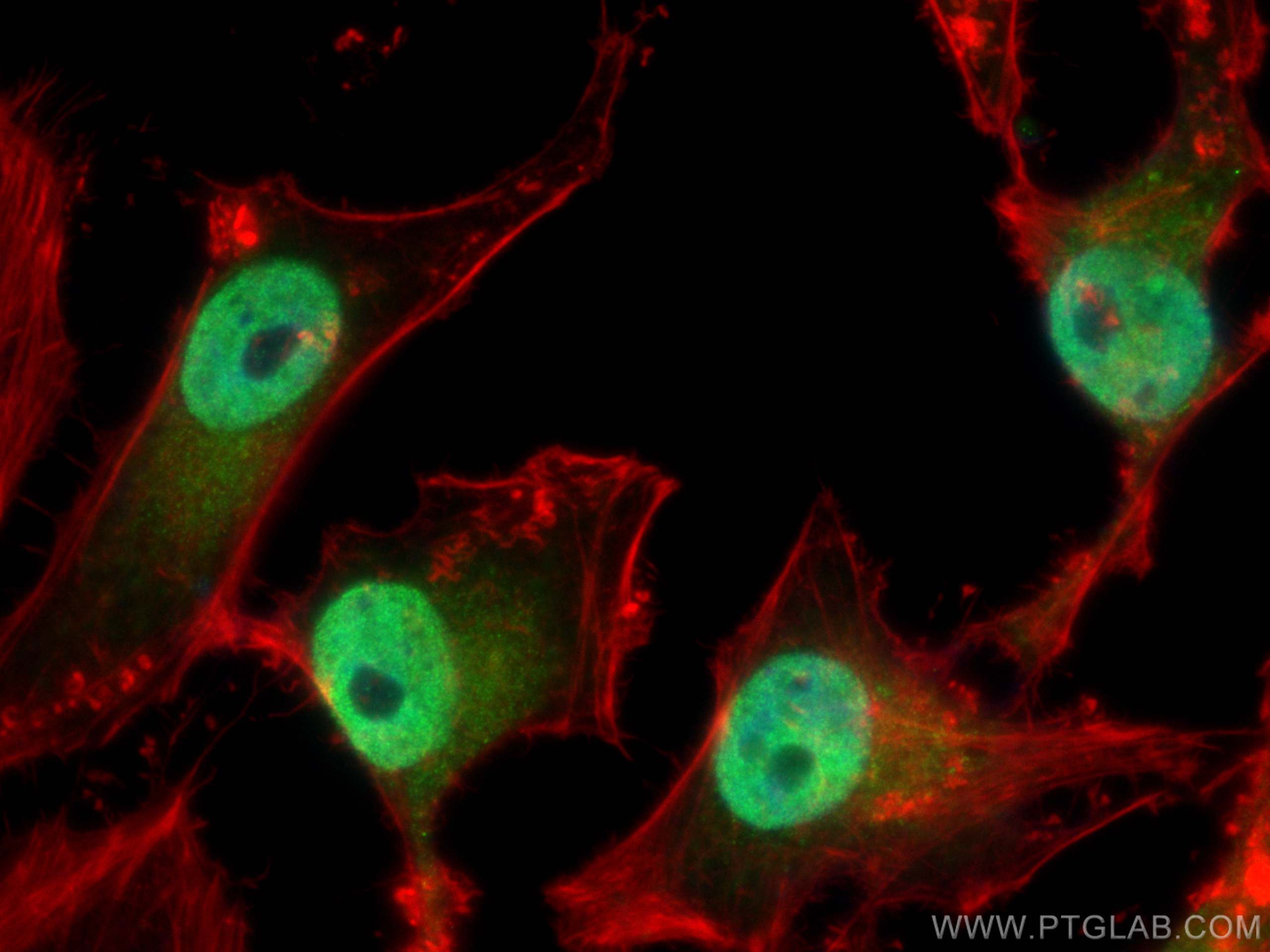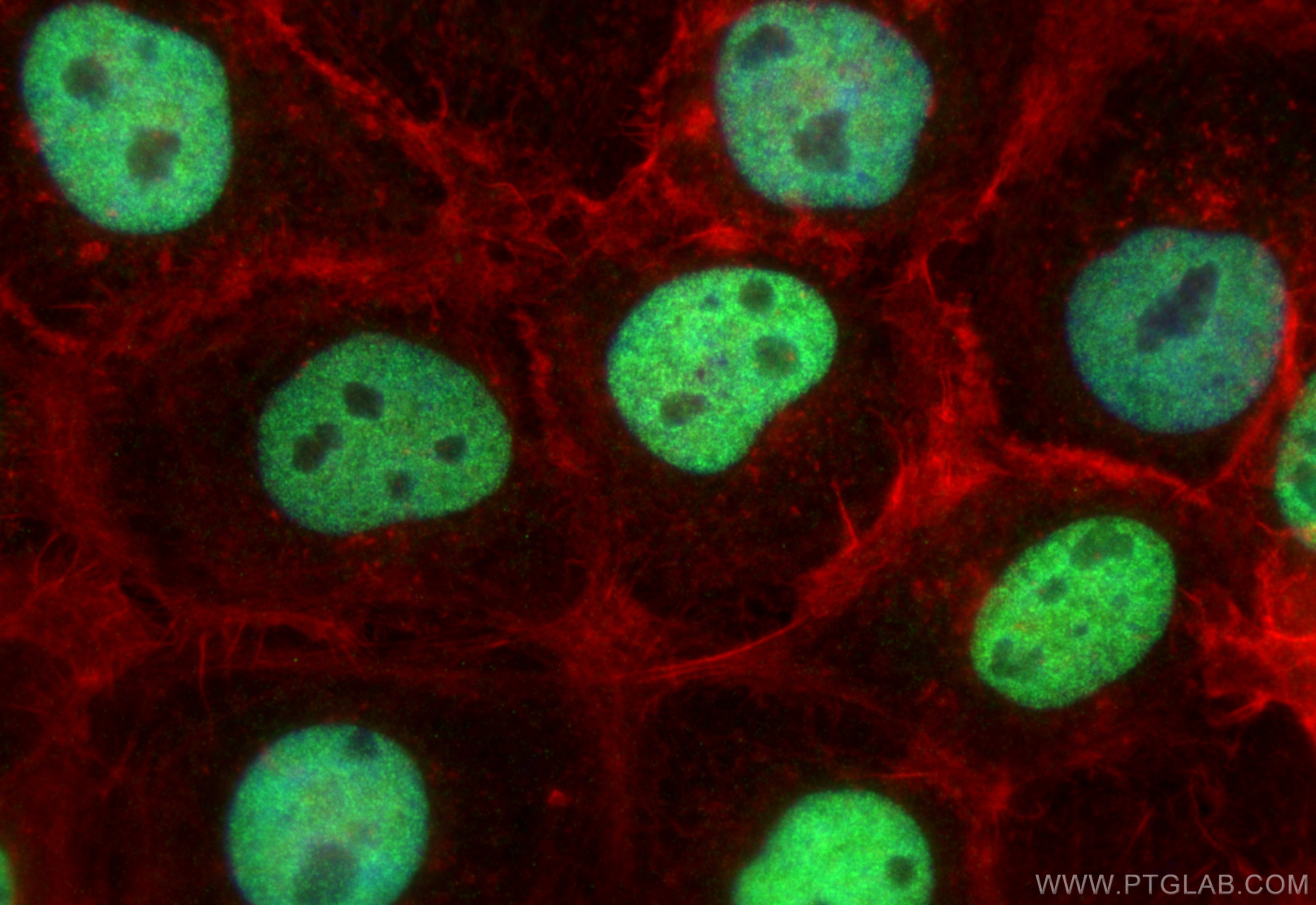- Featured Product
- KD/KO Validated
JUNB Polyklonaler Antikörper
JUNB Polyklonal Antikörper für WB, IHC, IF/ICC, IP, ELISA
Wirt / Isotyp
Kaninchen / IgG
Getestete Reaktivität
human, Maus, Ratte
Anwendung
WB, IHC, IF/ICC, IP, CoIP, ELISA
Konjugation
Unkonjugiert
Kat-Nr. : 10486-1-AP
Synonyme
Geprüfte Anwendungen
| Erfolgreiche Detektion in WB | HT-1080.Zellen, HeLa-Zellen, MCF-7-Zellen, MDA-MB-231-Zellen |
| Erfolgreiche IP | HeLa-Zellen |
| Erfolgreiche Detektion in IHC | humanes Lymphomgewebe, humanes Mammakarzinomgewebe, humanes Eierstockgewebe, humanes Hodengewebe Hinweis: Antigendemaskierung mit TE-Puffer pH 9,0 empfohlen. (*) Wahlweise kann die Antigendemaskierung auch mit Citratpuffer pH 6,0 erfolgen. |
| Erfolgreiche Detektion in IF/ICC | A431-Zellen, HeLa-Zellen |
Empfohlene Verdünnung
| Anwendung | Verdünnung |
|---|---|
| Western Blot (WB) | WB : 1:1000-1:8000 |
| Immunpräzipitation (IP) | IP : 0.5-4.0 ug for 1.0-3.0 mg of total protein lysate |
| Immunhistochemie (IHC) | IHC : 1:500-1:2000 |
| Immunfluoreszenz (IF)/ICC | IF/ICC : 1:400-1:1600 |
| It is recommended that this reagent should be titrated in each testing system to obtain optimal results. | |
| Sample-dependent, check data in validation data gallery | |
Veröffentlichte Anwendungen
| KD/KO | See 1 publications below |
| WB | See 10 publications below |
| IHC | See 1 publications below |
| IF | See 3 publications below |
| CoIP | See 1 publications below |
Produktinformation
10486-1-AP bindet in WB, IHC, IF/ICC, IP, CoIP, ELISA JUNB und zeigt Reaktivität mit human, Maus, Ratten
| Getestete Reaktivität | human, Maus, Ratte |
| In Publikationen genannte Reaktivität | human, Maus, Ratte |
| Wirt / Isotyp | Kaninchen / IgG |
| Klonalität | Polyklonal |
| Typ | Antikörper |
| Immunogen | JUNB fusion protein Ag0752 |
| Vollständiger Name | jun B proto-oncogene |
| Berechnetes Molekulargewicht | 36 kDa |
| Beobachtetes Molekulargewicht | 38 kDa, 42 kDa |
| GenBank-Zugangsnummer | BC004250 |
| Gene symbol | JUNB |
| Gene ID (NCBI) | 3726 |
| Konjugation | Unkonjugiert |
| Form | Liquid |
| Reinigungsmethode | Antigen-Affinitätsreinigung |
| Lagerungspuffer | PBS with 0.02% sodium azide and 50% glycerol |
| Lagerungsbedingungen | Bei -20°C lagern. Nach dem Versand ein Jahr lang stabil Aliquotieren ist bei -20oC Lagerung nicht notwendig. 20ul Größen enthalten 0,1% BSA. |
Hintergrundinformationen
JunB is one of the components of the Activator Protein-1 (AP-1) transcription complex that have been implicated in the control ofthe G0/G1 transtion in fibroblasts. AP-1 is a collection of dimers formed by members of the Jun-, Fos-, ATF- and Maf multigene families that bind to specific DNA regulatory elements called AP-1/12-O-tetradecanoylphorbol-13-acetate-responsive elements (TREs) and cAMP-responsive elements (CREs). JunB binds to the DNA sequence 5'-TGA[CG]TCA-3', and involves in the regulation of gene activity following the primary growth factor response. It also acts either as a tumor suppressor or as an oncogene depending on the cell and physiopathological context
Protokolle
| PRODUKTSPEZIFISCHE PROTOKOLLE | |
|---|---|
| WB protocol for JUNB antibody 10486-1-AP | Protokoll herunterladen |
| IHC protocol for JUNB antibody 10486-1-AP | Protokoll herunterladenl |
| IF protocol for JUNB antibody 10486-1-AP | Protokoll herunterladen |
| IP protocol for JUNB antibody 10486-1-AP | Protokoll herunterladen |
| STANDARD-PROTOKOLLE | |
|---|---|
| Klicken Sie hier, um unsere Standardprotokolle anzuzeigen |
Publikationen
| Species | Application | Title |
|---|---|---|
Signal Transduct Target Ther MDIG-mediated H3K9me3 demethylation upregulates Myc by activating OTX2 and facilitates liver regeneration | ||
Pharmacol Res Cyclo-(Phe-Tyr) as a novel cyclic dipeptide compound alleviates ischemic/reperfusion brain injury via JUNB/JNK/NF-κB and SOX5/PI3K/AKT pathways. | ||
J Proteome Res Systematic Survey of the Regulatory Networks of the Long Noncoding RNA BANCR in Cervical Cancer Cells. | ||
Oncol Lett Cigarette smoke extract-induced proliferation of normal human urothelial cells via the MAPK/AP-1 pathway. |
